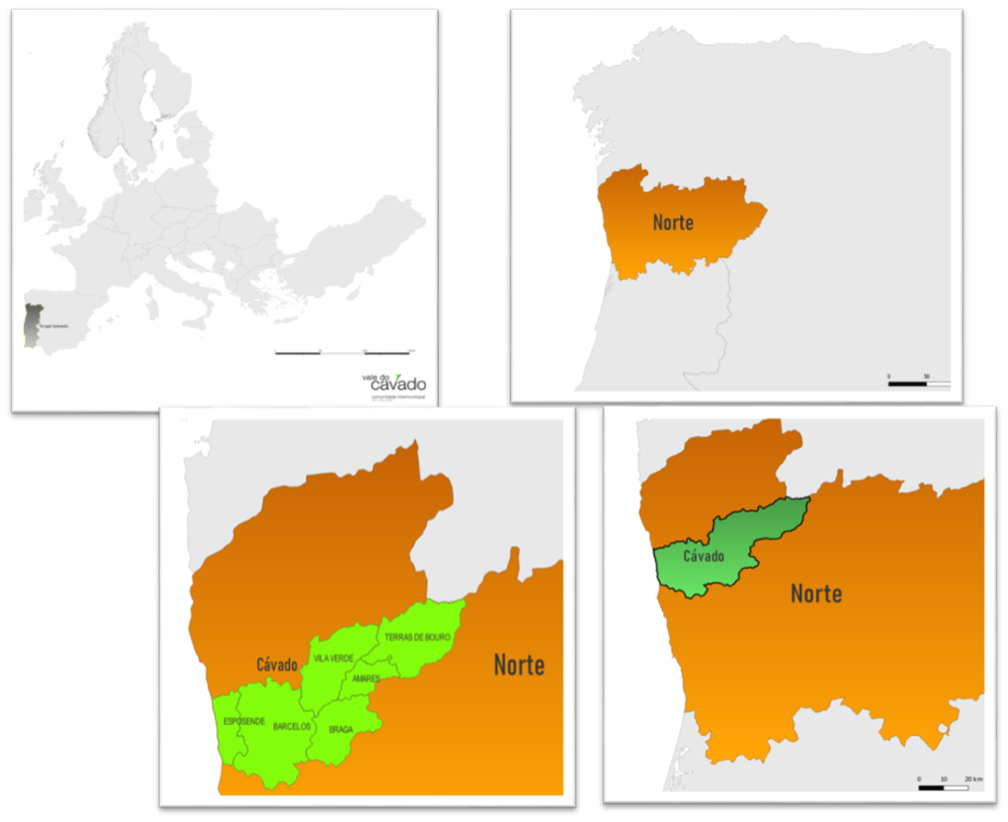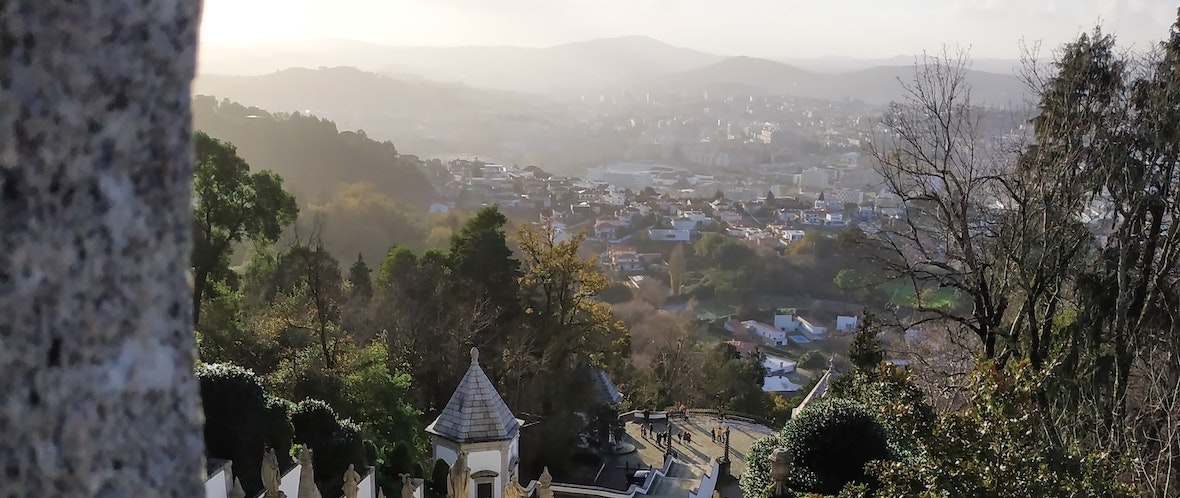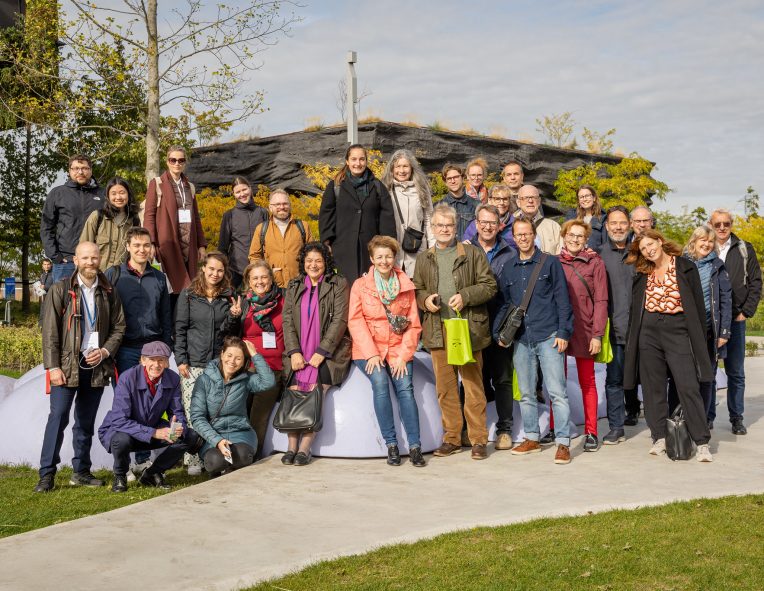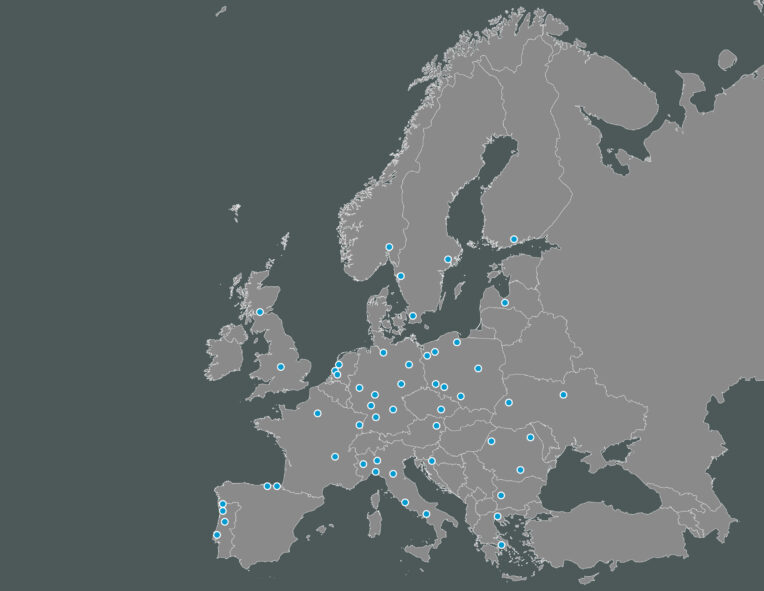CIM Cávado
Rua do Carmo, 29
4700-309 BRAGA
Primary METREX contacts
About CIM Cávado
The Intermunicipal Community of Cávado (CIM Cávado) is a collective person of public law formed as an association on 30 April 2008, of territorial scope which aims to achieve common interests of the municipalities comprising it, governed by Law No. 75/2013 of 12 September, as well as by statutes and other applicable legal provisions. This law approved a new legal framework and gave the CIMs new perspectives in their statutory competencies.

CIM Cávado aims to combine, promote and articulate common interests to the associated municipalities, in the area of collective proximity services, and municipal investments in terms of:
a) Promoting the planning and management of the strategy for the economic, social and environmental development of the territory covered;
b) Articulating municipal investments of intermunicipal interest;
c) Participating in the management of support programmes for regional development, namely within the scope of programming periods of the European Structural Investment Funds;
d) Planning of actions by public entities of a supramunicipal nature.
As an institutional space for municipal/intermunicipal co-operation, CIM Cávado seeks to foster the articulation of actions between municipalities and other partners, and to promote an integrated approach to territorial development interventions, as key development actors and a central platform for territorial cohesion.
In territorial terms it covers the municipalities of Amares, Braga, Barcelos, Esposende, Terras de Bouro and Vila Verde. The region is structured by the Cávado river basin and develops in a south-western and north-eastern direction, bordering the sea and Spain. It is a heterogeneous territory, integrating very rural municipalities by the sea, to very rural mountainous municipalities by the border, passing through very urban and dense municipalities such as Braga. With a total area of 1,246 km2 and 170 parishes, in 2021 it comprised a resident population of around 416,652 people. This association holds its interests mainly in the territorial development of the Cávado region.
Major projects
ENVIRONMENT AND NATURAL RESOURCES: Climate change, invasive species, water and waste management, Nature Destinations; Greenways (Cávado and Homem rivers); fluvial beaches;
TOURISM: Participation in fairs and contests, Destination promotion actions with influencers, Cultural Identity of Minho, cultural and pilgrimage routes;
ENERGY TRANSITION AND CLIMATE CHANGE: Covenant of mayors for sustainable energy, Energy education and youth, Energy management training, Public lighting; Signature of the Mission Charter for Climate Change;
MOBILITY: Public transport management and sustainability;
SOCIAL POLICIES: Culture for All, Integrated and innovative Plan to combat school failure, Municipal and Intermunicipal plan for equality and non-discrimination and work-life balance;
INSTITUTIONAL ACTIVITIES: Cooperation Network and Institutional Partners, among others: 6 associated Municipalites, CCDR Norte, the other Intermunicipal Communities of the North Region, Universities and Polytechnic Institutes, INL – International Iberian Nanotechnology Laboratory;
ECONOMY AND ENTREPRENEURSHIP: Training and Qualification, Entrepreneurship and Internationalization.
STRATEGY CÁVADO 2030
This strategy is framed in the context of the preparation of the 2021/2027 programming period of the European Structural Investment Funds, and will have an impact on the development of the Cávado territory.
Main Objectives:
1. Innovation, internationalization and competitiveness:
- Consolidation of the innovation and knowledge transfer system and strengthen its internationalization;
- To promote conditions for the dissemination and transfer of knowledge-innovation from the ecosystem already existing in Braga city to the whole Cávado Region;
Infrastructure and capacity building for digital transformation; environmental education.
2. Energy and climate change transition:
- New approaches to climate changes: elaboration and implement the action plan for adaptation to climate change and mitigation of emissions and monitoring system; more resilient rural areas and forestry; invasive species;
- To promote the sustainable mobility in the Cávado Region: smart and sustainable mobility programme; decarbonization of transport and sustainable mobility;
Promoting energy transition, circular economy and decarbonization.
3. Culture, tourism, urban system and territorial cohesion:
- To qualify the urban and territorial model: SMART cities; valorization of the natural and historical-cultural heritage; enhancement of the cultural and creative system;
- To promote energy transition, circular economy and decarburization;
Organization of the tourism offer and create an added value for the tourism businesses & tourism promotion; sustainable tourism promotion.
4. Education, training and social cohesion policies:
- To affirm the Cávado as an institutional area for concertation and cooperation at the service on a new generation of social and educative policies, including coordination of the social policies at the municipal and intermunicipal levels;
- To promote equity and educational success: new cycle of projects promoting educational success and combating early school drop;
- To promote social cohesion and socio-cultural activities in low density territories; promote health literacy;
- Capacity and training actions.



